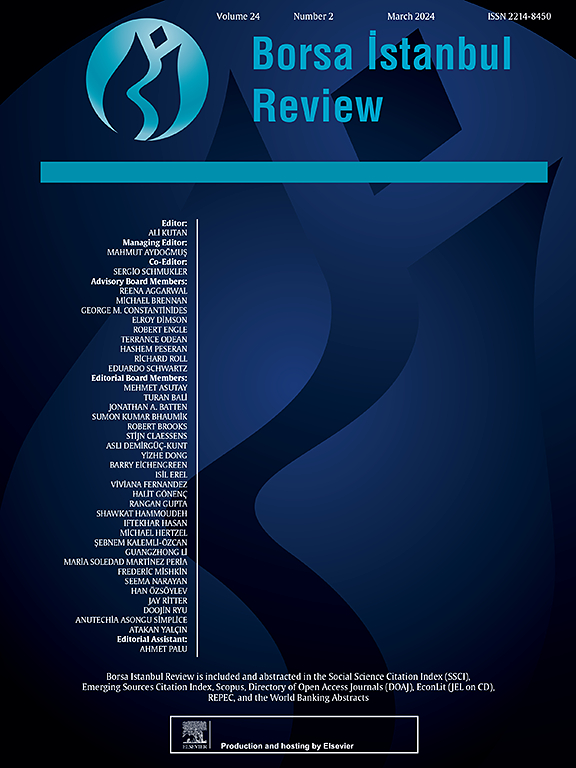绿色金融对环境可持续性的功效:控制腐败会产生影响吗?
IF 7.1
2区 经济学
Q1 BUSINESS, FINANCE
引用次数: 0
摘要
绿色金融(GF)在减少温室气体(GHG)排放和促进环境可持续性(ES)方面发挥着至关重要的作用。然而,绿色金融的效果可能因多种因素而异,尤其是对腐败的控制程度。本研究利用 2000-2020 年间 37 个亚洲国家的数据,研究了控制腐败对全球论坛功效的影响。研究结果表明,温室气体框架在减少温室气体排放和改善环境质量方面的效果取决于一个国家的腐败程度。具体而言,在腐败控制力强或腐败程度低的情况下,全球论坛具有显著的温室气体减排效果。这些发现在几种稳健性检验(包括对环境质量和腐败控制的其他测量方法以及不同的估计方法)后仍然是稳健的。这凸显了在国家层面加强腐败控制对优化全球基金资源的有效利用和促进环境服务的重要意义。本研究还根据这些结论提出了政策影响。本文章由计算机程序翻译,如有差异,请以英文原文为准。
The efficacy of green finance for environmental sustainability: Does control of corruption makes a difference?
Green finance (GF) plays a crucial role in reducing greenhouse gas (GHG) emissions and promoting environmental sustainability (ES). However, the efficacy of GF may vary, depending on several factors, particularly the extent of control of corruption. This study investigates the effect of control of corruption on the efficacy of GF using data on 37 Asian countries for the period 2000–2020. The results demonstrate that the efficacy of GF in reducing the GHG emissions and improving ES in a country depends on the level of corruption there. Specifically, GF has a significant GHG reduction effect in the presence of strong corruption control or low corruption levels. These findings remain robust to several robustness checks, including alternative measurements of ES and corruption control and different estimators. This highlights the significance of enhancing control of corruption at the national level to optimize efficient utilization of GF resources and advancing ES. The study also presents policy implications based on these findings.
求助全文
通过发布文献求助,成功后即可免费获取论文全文。
去求助
来源期刊

Borsa Istanbul Review
Multiple-
CiteScore
7.60
自引率
3.80%
发文量
130
审稿时长
26 days
期刊介绍:
Peer Review under the responsibility of Borsa İstanbul Anonim Sirketi. Borsa İstanbul Review provides a scholarly platform for empirical financial studies including but not limited to financial markets and institutions, financial economics, investor behavior, financial centers and market structures, corporate finance, recent economic and financial trends. Micro and macro data applications and comparative studies are welcome. Country coverage includes advanced, emerging and developing economies. In particular, we would like to publish empirical papers with significant policy implications and encourage submissions in the following areas: Research Topics: • Investments and Portfolio Management • Behavioral Finance • Financial Markets and Institutions • Market Microstructure • Islamic Finance • Financial Risk Management • Valuation • Capital Markets Governance • Financial Regulations
 求助内容:
求助内容: 应助结果提醒方式:
应助结果提醒方式:


